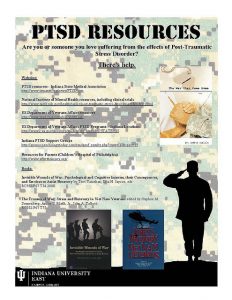
Serving in the military can lead to an array of physical injuries or psychological traumas. But the media most often focuses on one particular trauma when veterans commit violent crimes — Post Traumatic Stress Disorder (PTSD). Sociologist Ardath Whynackt talked to CBC Radio about how the media’s focus on PTSD can be counterproductive.
To start, Whynackt points out that there is no evidence that PTSD makes an individual dangerous, despite the number of movies, TV shows, and characters wherein “PTSD” leads characters to do something crazy. The media’s obsession with PTSD often obscures deeper issues, like the way we socialize men to be aggressive in the first place. For example, news broke in early January that a Canadian veteran murdered his family and committed suicide afterwards; it was later revealed that this man was suffering from PTSD and the media focused solely on that aspect of the case. Whynackt explains,
“When we talk about PTSD and we frame the conversation in really narrow terms around a lack of care for veterans – and I do agree there is a lack of care for veterans and we do need more – but we end up talking only about him as if he wasn’t accountable for his actions … If we want to talk about programs and services to prevent incidents like this, we need to be talking about not only trauma supports for all men, not just veterans, but we also need to be talking about the ways in which we socialize young men to take their distress out on others using anger and violence.”

Comments